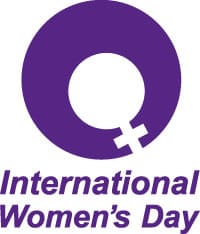Returning to work after parental leave can be one of the most challenging transitions in a parent’s life. In this guest interview, life coach Jess from JEM Coaching shares her experience and practical advice on how women can rebuild confidence, navigate identity shifts and find balance as they return to the workplace. Drawing on her own journey and work with parents across the UK, Jess offers valuable insights into managing the emotional and practical sides of this pivotal change.

1. To start, can you tell us a little about yourself and the journey that led you to becoming a life coach and focus on supporting women returning to work after parental leave?
Absolutely, I’m Jess. I’m a professionally trained life coach specialising in supporting parents returning to the workplace, and a mum of two girls, aged 5 and 3.
Before coaching, I worked as a Business Analyst in Financial Services. My two return-to-work experiences were very different from each other, and from what I expected. I navigated shifts in identity, imposter syndrome, self-doubt, and intense mum guilt. I trialled full-time work, flexi-time, part-time, got a promotion and handed it back. I wanted to work, but I also wanted to be a present mum. Even with a supportive workplace, it was challenging. Both times.
That made me realise two things:
1 – If it’s this challenging for me, I can’t be the only one.
2 – I want to be here, so what about those who don’t want to return to work but have to, or don’t feel fulfilled, or don’t have a supportive workplace?
That’s when the vision for JEM Coaching was born – to help parents returning to work use the tension of working parent life to their advantage and find their unique work-life harmony. I then trained as a life coach to bring this vision to life, and here we are.
2. Many women say the hardest part of returning to work isn’t finding a job but rebuilding confidence. Where should they begin?
Regaining confidence is the foundation to a person’s return to work journey. I have three key tips on where to begin.
1 – Reconnect with your strengths. Before you do anything take a moment to list your stills, achievements, and what you uniquely bring to the table. Seeing these written down will cement your belief in them. If this is difficult ask close friends, family, or past colleagues what they see your strengths as. Knowing your value is the first step to regaining confidence.
2 – Set small, achievable goals. Confidence grows when you experience wins. Don’t push for perfection, choose bite size goals. A successful meeting, a clear project plan, speaking up in a team discussion. And celebrate each one.
3 – Practise self-compassion. Treat yourself like a friend and acknowledge your feelings. Focus on progression not perfection.
3. When working with women preparing to return, what are the most common challenges you see?
There are two channels of challenges I see.
1 – Logistical challenges. What will childcare look like? What happens if work runs late or trains are delayed? What flexibility does your workplace offer? Many women have been carrying the invisible workload at home during leave, so it’s crucial to have an open conversation with their partner about responsibilities and expectations before returning.
2 – Emotional challenges. Returning to work often brings internal conflicts: Imposter syndrome, mum guilt, identity shifts, lack of confidence. Addressing these feelings is key to rebuilding confidence and preparing for a smooth transition.
4. How can women identify the right type of role or career path after taking time out?
There are a couple of key steps:
1 – Clarify practical needs. Consider what you want in your working life: part-time, full-time, flexible hours, or shorter workdays. Understanding your practical requirements is the first step to finding a role that fits your life.
2 – Align your skills. Look at how your “new” skills from parental leave complement your existing experience. Many parents underestimate the skills they develop during leave. Multitasking, leadership, negotiation, time management, delegation, resilience, stress management, and problem-solving. Recognising and articulating these transferable skills helps identify roles where you can thrive.
5. What advice would you give to someone who wants to return to work but doesn’t know where to start?
I suggest beginning with a simple but powerful question: “What does success look like for me now?”
Once you’ve answered it once, ask yourself, “Is that all?” Repeat this question a few times (I usually recommend five) and you’ll start to uncover the true meaning of success for your current stage of life.
Success might be a specific salary, a senior role, or it could be being at the school gate three days a week. Whatever it is, identifying it gives you a clear starting point. There’s no point striving for something that isn’t aligned with your new self.
6. How can women talk about a career break confidently in interviews or on their CV?
When talking about a career break in interviews or on your CV, focus on everything you achieved during that time. What successes did you have? What skills did you develop or strengthen? What challenges did you overcome?
Approach it the same way you would if it were a paid role, each experience has value. Once you can answer these questions clearly, you’ll naturally feel proud of your journey.
Speak your achievements out loud, discuss them with friends or family, and own your story. That pride and confidence will shine through to employers.
7. How can workplaces better support women coming back after maternity leave or longer career breaks?
It’s all about fostering a culture where returning employees feel understood, empowered, valued and have access to the right resources so they can thrive.
Some practical ways that would support this are:
1 – Regular check-ins: Ask how they’re really doing, what their workload looks like at home, and how they’re feeling. Genuine curiosity helps returning parents feel seen and supported.
2 – Flexibility and carer benefits: Providing options such as hybrid working or carer leave can make all the difference. When a child gets sick, having to use holiday or unpaid leave each time is exhausting and unsustainable.
3 – Access to coaching: Coaching gives employees a dedicated space to process the emotional side of returning to work, rebuild confidence, and find balance between personal and professional priorities. It benefits not only the individual but also the wider team dynamic.
8. What role can coaching play in helping women transition back into the workplace?
Coaching provides a safe, separate space to be truly heard. Returning to work is a pivotal point in life. A time when tension is high, overwhelm is amplified, and survival mode can take over.
In this context, coaching offers the opportunity to pause, have a soundboard, feel validated, and leave with tangible actions and a clear plan for the day or week ahead.
It’s your time — not for your family, not for work — just for you. A space to reflect, reset, and approach your return to work with confidence and clarity.
9. Returning to work isn’t just logistical, it’s emotional and identity-shifting. How do you help women navigate that change?
Coaching helps women navigate this change by asking the right questions, because the answers already lie within them.
In my sessions, we uncover your true values and beliefs so you can lead a life intentionally aligned with them. It’s an emotional process, but by honouring your values, you can approach your new work identity with confidence and clarity.
10. Can you tell us about your Empowered Transitions program and what makes it unique for women returning to work?
Empowered Transitions is a coaching program designed specifically for people returning to work after parental leave or career breaks. It addresses the whole transition.
I combine my analytical background with a human-centred approach to understand each client’s unique situation, strengths, and challenges. This allows me to offer insights that are both data-informed and deeply empathetic, helping people rebuild confidence, clarify career goals, and navigate workplace dynamics effectively.
The program also helps people harness the “tension” of working parent life — the push and pull between professional ambition and family priorities — and turn it into an advantage rather than a source of stress.
Ultimately, Empowered Transitions supports women returning to work feeling prepared, empowered, and confident, with practical strategies they can implement immediately while honouring the reality of parenthood.
To find out more about Jess and her work, visit JEM Coaching to explore her programmes and resources designed to support parents returning to work with confidence and clarity.

Jess Mills
Jess Mills is a certified professional life coach and founder of JEM Coaching, specialising in supporting parents returning to work after parental leave. Combining her analytical background in financial services with human-centred insight, she helps working parents use the tension of work and parenthood to their advantage to find their unique work life harmony.



